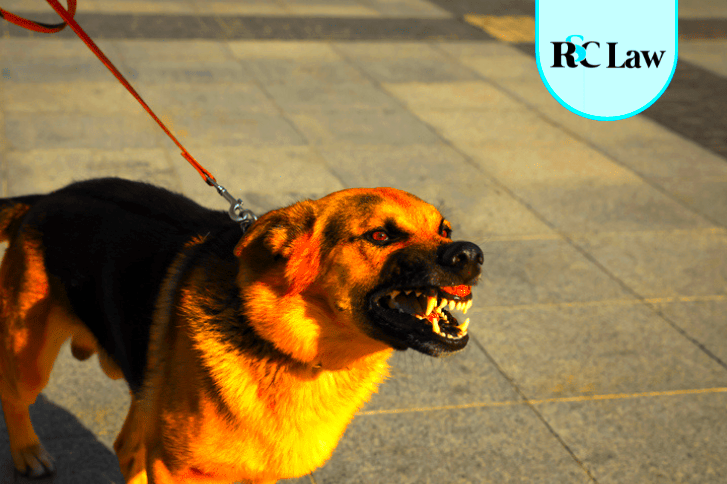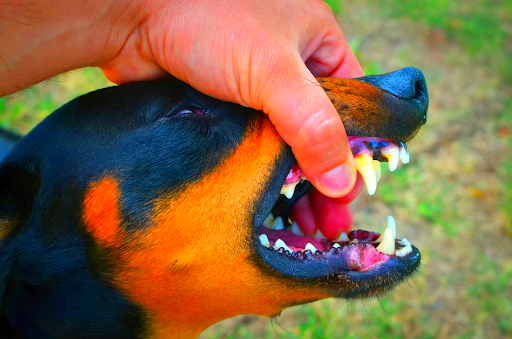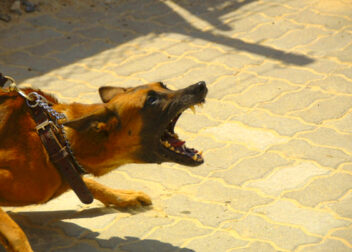Minnesota Dog Bite Laws What to Expect
In Minnesota, dog bite laws aim to protect both dog owners and victims. Understanding these laws is essential for anyone involved in a dog-related incident. The state follows a “strict liability” approach, which means dog owners are responsible for injuries their pets cause, regardless of whether the dog has shown aggressive behavior before. This sets the stage for how legal matters are handled when a dog bite occurs.
Understanding Liability in Dog Bite Cases

Liability in dog bite cases can be complicated, but it generally revolves around two key concepts:
- Strict Liability: As mentioned, dog owners in Minnesota are liable for injuries caused by their dogs, even if the dog had no previous history of aggression.
- Negligence: If a dog owner failed to take reasonable precautions to prevent a dog bite, they may also be held liable. This includes failing to secure the dog properly or allowing it to roam freely.
It’s important to gather evidence, such as witness statements and medical records, to establish liability. Factors that might affect liability include:
- Whether the victim was trespassing
- If the victim provoked the dog
- Any previous complaints about the dog’s behavior
Understanding these aspects can greatly influence the outcome of a case.
Types of Injuries Caused by Dog Bites
Dog bites can lead to a variety of injuries, ranging from minor to severe. Here are some common types of injuries:
- Puncture Wounds: Deep holes created by a dog’s teeth that can become infected.
- Lacerations: Cuts that may require stitches, often leaving scars.
- Fractures: Broken bones, especially in cases where the victim tries to defend themselves.
- Infections: Dog bites can lead to serious infections, including rabies if the dog is not vaccinated.
- Emotional Trauma: Victims may suffer from anxiety, fear of dogs, or post-traumatic stress disorder.
Each of these injuries can have long-lasting effects, both physically and emotionally. Seeking medical attention immediately after a dog bite is crucial for proper treatment and documentation.
Steps to Take After a Dog Bite Incident
If you find yourself in a situation where you’ve been bitten by a dog, knowing the right steps to take can make a big difference in your recovery and any potential legal claims. Here’s a simple guide to follow:
- Seek Medical Attention: Your health is the priority. Even if the bite seems minor, it’s important to get checked by a medical professional to prevent infections.
- Document the Incident: Take photos of your injuries and the location where the bite occurred. This documentation can be crucial later.
- Gather Information: Collect details about the dog, including the owner’s information, vaccination records, and any witnesses’ contact details.
- Report the Incident: Notify local animal control or the police about the dog bite. This can help in documenting the incident officially.
- Follow Up on Medical Care: Attend all medical appointments and follow your doctor’s advice to ensure proper healing.
Taking these steps can help protect your health and rights after a dog bite incident.
How to File a Dog Bite Claim in Minnesota
Filing a dog bite claim in Minnesota involves several steps. Here’s a breakdown of the process:
- Consult with a Lawyer: It’s wise to seek legal advice to understand your rights and the potential for compensation.
- Gather Evidence: Collect all necessary documents, including medical records, photographs, and witness statements.
- Send a Demand Letter: This letter outlines your case and the compensation you’re seeking. It is usually sent to the dog owner’s insurance company.
- Negotiate: Be prepared for back-and-forth discussions with the insurance adjuster. Negotiations can take time, so patience is key.
- File a Lawsuit (if needed): If negotiations don’t lead to a fair settlement, you may need to file a lawsuit. Your lawyer can guide you through this process.
Understanding these steps can simplify the claims process and help you feel more confident moving forward.
Potential Compensation for Dog Bite Victims
If you’ve been bitten by a dog, you may be entitled to various types of compensation. Here’s what you could potentially claim:
- Medical Expenses: This includes hospital bills, medications, therapy, and any future medical costs related to your injuries.
- Lost Wages: If you miss work due to your injuries, you can seek compensation for lost income.
- Pain and Suffering: Compensation for the physical pain and emotional distress caused by the dog bite.
- Emotional Distress: If the incident has led to anxiety or PTSD, you may be able to claim damages for this as well.
- Property Damage: If personal belongings were damaged during the incident, you could also seek reimbursement for those costs.
The exact amount of compensation varies based on the specifics of each case, including the severity of the injuries and the circumstances surrounding the dog bite. Consulting with a legal professional can help you understand what to expect and how to proceed.
Common Defenses in Dog Bite Cases
In dog bite cases, dog owners often present various defenses to counter claims. Understanding these defenses can help victims prepare for potential challenges. Here are some common defenses that may arise:
- Provocation: If the victim provoked the dog—by teasing, hitting, or otherwise agitating it—the owner may argue that they are not liable.
- Assumption of Risk: This defense suggests that the victim knew the risks involved, perhaps by being in a dog park or engaging in activities with the dog.
- Trespassing: If the victim was on private property without permission when the bite occurred, the owner might claim they are not liable.
- Previous Aggression: If the dog had no history of aggression and had been well-behaved, the owner might argue that they took reasonable precautions.
- Comparative Negligence: Minnesota follows a “comparative fault” rule, meaning the victim’s own negligence (like ignoring a warning sign) could reduce their compensation.
Understanding these defenses can help victims and their lawyers anticipate arguments and build a stronger case.
Frequently Asked Questions about Dog Bite Laws
Dog bite laws can be confusing, and many people have common questions. Here are some frequently asked questions to help clarify:
- What should I do immediately after a dog bite? Seek medical attention, document the incident, and gather information about the dog and its owner.
- Can I sue if the dog was on a leash? Yes, the owner can still be held liable if their dog bites you, even if it was leashed.
- How long do I have to file a claim? In Minnesota, you typically have six years from the date of the incident to file a personal injury claim.
- Will my case go to court? Not necessarily; many cases are settled out of court. However, it’s essential to be prepared for all possibilities.
- What if the dog owner doesn’t have insurance? If the owner is uninsured, you may still have options, like pursuing a claim through your own insurance policy.
These questions address some of the common concerns surrounding dog bite laws and help clarify the rights of victims.
Conclusion on Minnesota Dog Bite Laws
In conclusion, Minnesota dog bite laws aim to protect victims while holding dog owners accountable for their pets’ actions. Understanding your rights and the steps to take after a dog bite can significantly impact the outcome of your case. Whether you’re a dog owner or a victim, being informed about liability, compensation, and defenses is crucial.
If you find yourself in a dog bite situation, don’t hesitate to seek legal advice. Having a knowledgeable lawyer can help navigate the complexities of the law and ensure you receive the compensation you deserve. Remember, every case is unique, and being proactive is key to achieving a fair resolution.


